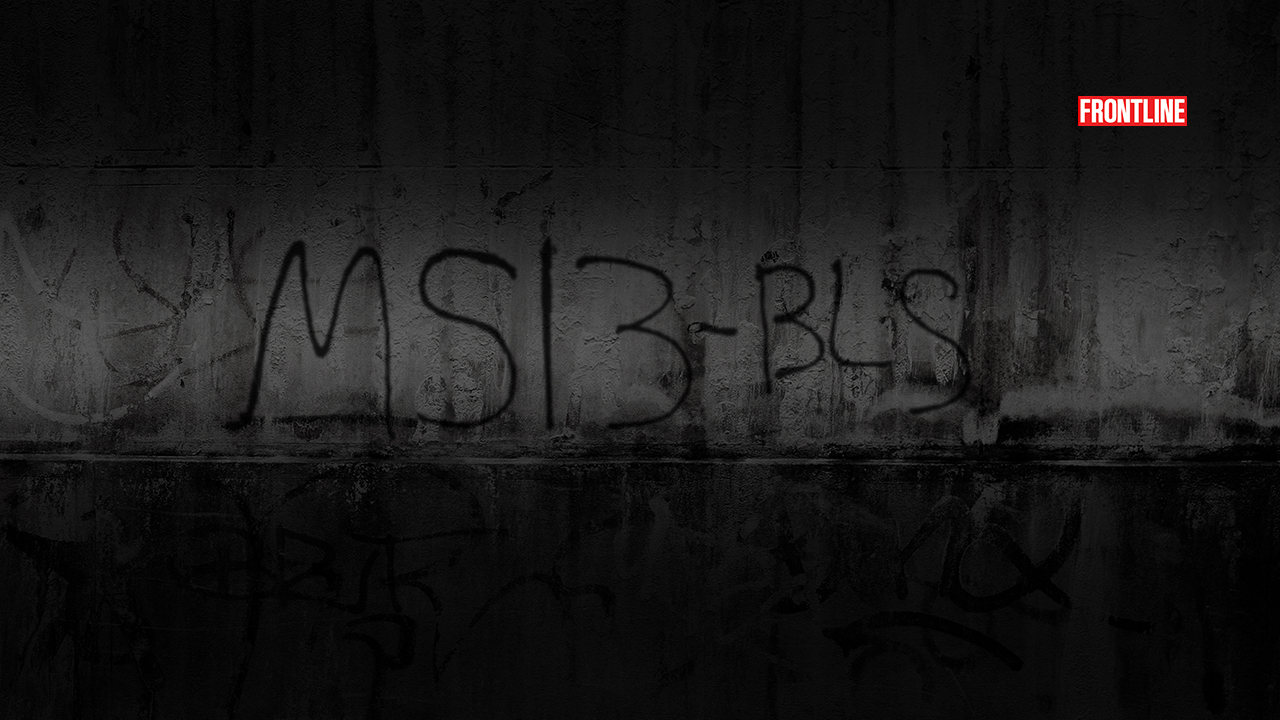“Frontline” investigates the controversial stories shaping our times, from criminal justice to politics to global issues. Examine the scope and complexity of the human, social and political experience on Tuesdays at 9 p.m. unless otherwise noted.
“Trump’s Takeover” — April 10
President Donald Trump’s first year in office has been marked by ongoing turmoil — including in his own Republican party, where presidential tweetstorms, inflammatory rhetoric and high-profile dissent have fueled open conflict. “Our in-depth look at this contest, waged over the first year of Trump’s presidency, is a window into the potential lasting impact of the Trump era on the Republican Party and the American political system as a whole,” says “Frontline” filmmaker Michael Kirk (“Putin’s Revenge,” “Divided States of America” and “The Choice 2016”).
Republican lawmakers and insiders themselves contribute to the story of Trump’s takeover of the Republican Party.
“Somebody needs to stand up and say, ‘This is not our party. This is not behavior that we should condone. We shouldn’t be okay with this. This is not normal,’” says Senator Jeff Flake (R., Ariz.), one of the few legislators in his party to proclaim this point of view so publicly. His comments come in a far-ranging interview with “Frontline” on everything from his first, highly combative meeting with Trump, to his decision to join the record number of Republicans who have announced they will not seek re-election after their current terms end.
“What the Republican establishment now know is Donald Trump is unequivocally the leader of the Republican Party,” former Trump campaign manager Corey Lewandowski tells “Frontline.” “He is the one who sets the tone of what takes place in Washington. He is the leader of our country, both politically and from a legislative side of things, and I think they’ve learned that over the last year.”
Through interviews with longtime Republican legislators, House Freedom Caucus members, senior White House officials, Trump confidantes, authors and journalists, “Trump’s Takeover” examines how hopes for unified Republican control in Washington were challenged by divisions inside the party. It explores how Trump has fought for control of the GOP and is remaking it in his own image, publicly attacking those like Flake who defy him.
“Trump’s Takeover” examines the president’s unorthodox governing style, showing how after taking office, he displayed a lack of interest in the ins and outs of legislation and policy — and instead took to Twitter, attacking opponents. The film goes behind closed doors in the negotiations to repeal and replace Obamacare — Trump’s first major legislative test — revealing through accounts of people who were there how little Trump seemed to understand or care about the details of the bill.
“The president was not particularly engaged in the policy details. That was pretty apparent,” Representative Charlie Dent (R., Pa.) tells “Frontline.” “The president seemed to defer to Congress, largely, and basically, ‘Whatever you guys pass, I’ll sign.’”
From Trump’s belittlement of party leaders when the bill died, to a split over what many in the party said was the president’s inadequate response to deadly violence at a white supremacist rally in Charlottesville, to when Congress ultimately delivered a major legislative victory for Trump with the passage of tax reform, “Trump’s Takeover” is a powerful, must-watch look at Trump’s relationship with the GOP in his first year as president — and its potential implications.
“The Republican party has been thoroughly Trumpified, and they’re bowing the knee to him,” conservative author Charlie Sykes says. “Now, in a Faustian bargain, remember, you often get what you want… But then you find out that the price is way more than you were expecting.”
“McCain” — April 17
The following week, “McCain” continues the story of the Republican Party’s evolution with an exploration of Senator John McCain’s complicated relationship with President Trump and the Republican Party, as well as his life and politics.
“No one knows the workings of the modern Republican Party like John McCain,” says Kirk, who with his team has been reporting on McCain for years, including in “The Choice 2008.” “In ‘McCain,’ we’ll chronicle how President Trump came to see him as a foe, and examine how the Republican Party has evolved across his political lifetime.”
Drawing on both new interviews and “Frontline’s” deep archive of reporting, McCain traces the conservative standard-bearer’s motivations and his political history — from his experience as a prisoner of war in Vietnam, to speaking out against torture during the Bush administration, to his dramatic vote against the GOP’s health care bill last year.
“By McCain ending Trump’s initiative, by McCain putting his hand up and saying, ‘Stop,’ it was a roaring back for the Republican establishment,” Robert Costa of The Washington Post and Washington Week tells “Frontline.”
But the film also examines how, with his 2008 nomination of Sarah Palin as running mate, McCain himself contributed to a growing challenge to the party establishment: “That was really the first time that you had this establishment versus grass roots conflict,” says Republican pollster Frank Luntz.
Both “Trump’s Takeover” and “McCain” are must-watch documentaries for anyone who wants to understand American politics in the Trump era.
“Trafficked in America” – April 24
Get the inside story of Guatemalan teens forced to work against their will in Ohio. An investigation of labor trafficking exposes a criminal network exploiting undocumented minors, companies profiting from forced labor and the U.S. government’s role.
“Blackout in Puerto Rico” – May 1
More than seven months after Hurricane Maria devastated the U.S. territory of Puerto Rico, damaging or destroying homes and demolishing much of the island’s infrastructure, more than a hundred thousand Americans are still without power, as part of the worst blackout in U.S. history. Investigate the humanitarian and economic crisis in Puerto Rico after Hurricane Maria. Examine how the federal response, Wall Street and years of neglect have left the island struggling to survive.
“What happened in Puerto Rico in the wake of Hurricane Maria was actually the result of two disasters – one natural, and one man-made,” says NPR’s Laura Sullivan, who spent seven months investigating the recovery effort with “Frontline” producer Rick Young and his team. “We went in search of the people who could tell us what really happened.”
The investigation uncovers a trove of insider documents and emails that show a government relief effort in chaos, struggling with key contracts, basic supplies and its own workforce. Underpinning it all, “Blackout in Puerto Rico” delves into Wall Street’s role in the island’s economic demise – a crisis that left it dangerously vulnerable to a storm like Maria.
And finally, the investigation examines the American government’s inconsistent policies towards the territory of Puerto Rico, which it took over in 1898. Under tax law, Puerto Rico is a foreign entity, but under maritime law, it’s part of the U.S. And its citizens don’t have full constitutional rights: For example, they can serve in the military, but can’t vote for the president. “Blackout in Puerto Rico” traces the relationship between Puerto Rico and the U.S. – including how Congress’s withdrawal of a special tax break helped spur the Puerto Rican government’s cycle of debt and borrowing.
“Myanmar’s Killing Fields” – May 8
Secret footage going back years shows the effort to kill and expel Rohingya Muslims from Myanmar. Through accounts from victims and a whistleblower within the military, examine evidence that security forces committed crimes against humanity. (Also Thu. 5/10 at 4 a.m.)
“Weinstein” – May 22
How the Hollywood mogul allegedly sexually harassed and abused dozens of women over four decades. With allegations going back to Weinstein’s early years, the film investigates the elaborate ways he and those around him tried to silence his accusers. (Also Thu. 5/24 at 4 a.m.)
“The Gang Crackdown” – May 29
Investigate a slew of killings linked to the MS-13 gang and the crackdown that swept up immigrant teens. Some 25 bodies have surfaced since 2016. Law enforcement is trying to stop the gang, but some teens have been unlawfully detained in the process. (Also Thu. 5/31 at 4 a.m.)
























